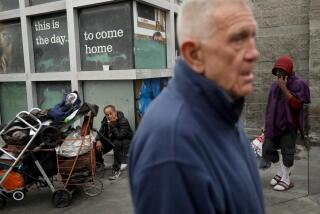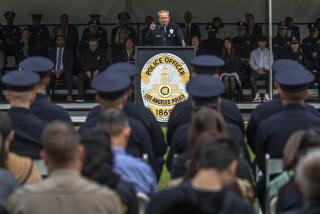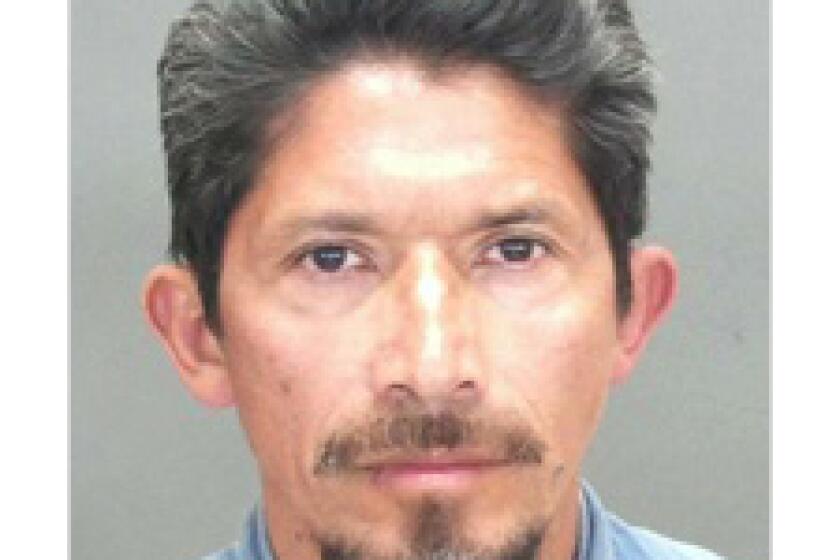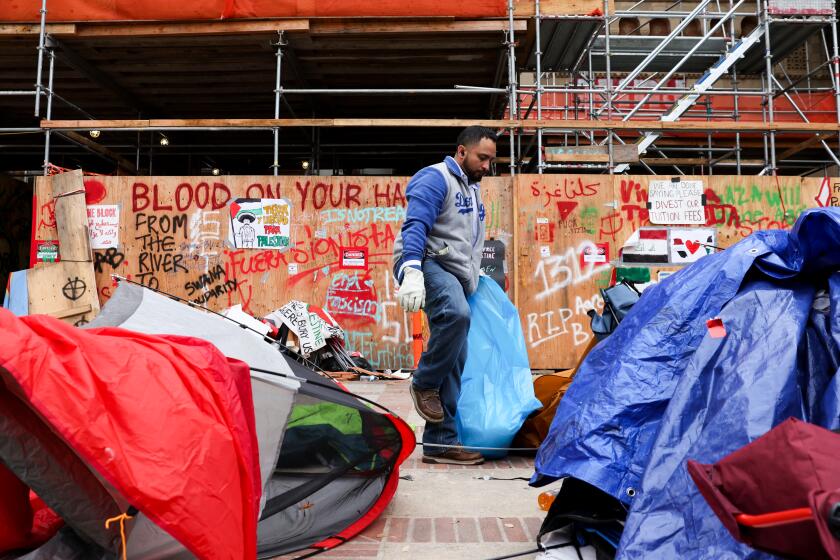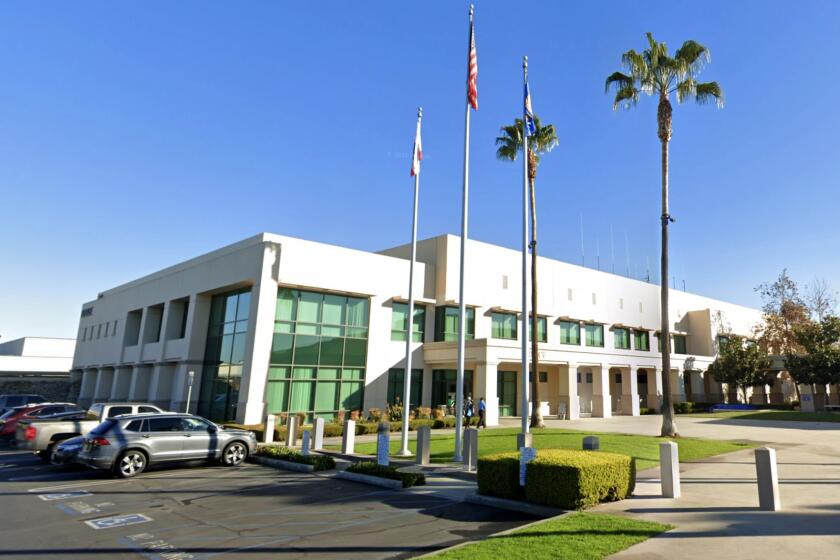Agreement Reached on Inner-City Aid Package : Recovery: U.S. assents to name change for Weed and Seed program and allows local control of anti-crime component. Dispute had jeopardized $19-million federal grant.
Three Los Angeles City Council members said Friday they now back a $19-million program to revitalize their inner-city neighborhoods, after winning a name change for the controversial program and assurances that its anti-crime component will not be too heavy-handed.
Last week, the objections posed by the three lawmakers threatened to jeopardize the city’s receipt of funds for the federal Weed and Seed program targeted at inner-city neighborhoods hard hit by last spring’s rioting.
The new agreement was worked out in talks late Friday involving the three lawmakers--council members Mark Ridley-Thomas, Rita Walters and Mike Hernandez--along with Mayor Tom Bradley and Chief Willie L. Williams.
U.S. Atty. Terree Bowers said the Justice Department, which funds the program, supports the compromise. “We are very happy,” Bowers said.
Ridley-Thomas said the agreement means that Los Angeles government leaders will have a free hand in shaping the law enforcement part of the program.
The “heavy-handed approach” employed in the federal program in other cities “is history. Community-based policing will be the order of the day in Los Angeles,” Ridley-Thomas said.
“It will not be the Justice Department running the program here,” Hernandez said.
Although the Justice Department provides the money, the Los Angeles program will have “no hidden string attached to it--this is an LAPD project,” Bowers said.
The council members also promised to hold public hearings on the kinds of law enforcement efforts that should be funded by the program.
Bradley and the three lawmakers announced that the program will be known in Los Angeles as Community Project for Restoration. The word weed had been particularly offensive to some residents, said Al Reyes, Ridley-Thomas’ press deputy. “They were saying it was calling their kids weeds.”
It was only a week ago that the city’s acceptance of the program appeared to unravel after Ridley-Thomas and Walters voted 2 to 0 as members of the council’s Ad Hoc Committee on Recovery to reject the funding for the anti-crime element of Weed and Seed.
Subsequently, federal authorities, including Bowers, warned that for the city to obtain any of the Justice Department funds for the program it needed an anti-crime element. “You can’t buy this a la carte,” he said. “It’s a full-course meal or nothing.”
The city’s original Weed and Seed proposal, crafted by Williams, called for a $1-million anti-crime element and an $18-million social services element. The theory underlying the program is for the two elements to work hand in hand to revitalize tough inner-city areas.
Under the agreement, the ratio of anti-crime to anti-poverty spending remains the same. What is new are assurances that the anti-crime component will be fully controlled by local officials and the Police Department.
In other cities, the Justice Department has taken the dominant role in running the anti-crime elements of similar programs. That has resulted in massive sweeps and the arrest of suspects on tougher federal anti-drug laws, Ridley-Thomas said.
Such law enforcement activities would only exacerbate tensions in the community, the lawmakers have said.
In Los Angeles, the program is to be aimed at two areas hard hit by last spring’s civil disturbances: the heavily Latino Pico-Union area and a preponderantly African-American area in South-Central Los Angeles between Manchester and Vernon avenues.
Friday’s agreement aborted a proposal by Councilman Joel Wachs to rechannel the money for the San Fernando Valley.
In a motion he introduced Friday, Wachs, a candidate for mayor running on a platform largely targeted at Valley voters, asked that the Valley get the $19-million Weed and Seed grant when it appeared that the program might not win the acceptance of inner-city lawmakers.
More to Read
Start your day right
Sign up for Essential California for news, features and recommendations from the L.A. Times and beyond in your inbox six days a week.
You may occasionally receive promotional content from the Los Angeles Times.
